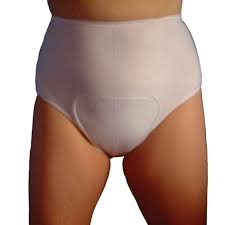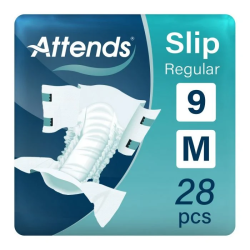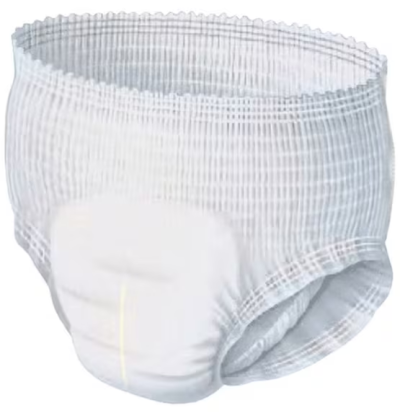Neurodiversity information for parents and young people
Why dementia causes continence problems
Many people with dementia have problems using the toilet independently. This may be for a number of reasons. They:
- forget to go to the toilet
- are unable to tell you they need to
- do not recognise the normal triggers that tell us we need to go to the toilet
- do not remember the way to the toilet
- do not recognise the toilet when they get there.
In these cases, regular gentle reminders might be needed to maintain good toilet habits.
What can help
If the person you’re caring for forgets where the toilet is, a notice or picture on the door might help.
A regular routine of visiting the toilet every 2 to 3 hours or before meals can help them.
As the carer, you may need to learn to recognise the signs that mean they need the toilet. You can then discreetly encourage them to go at those times.
The Alzheimer’s society has a leaflet giving further advice to manage continence:
Continence service
Incontinence is when people have trouble controlling their bladder or bowel movements. This means they may accidentally leak urine or have bowel movements when they are not on a toilet.
Richmond's continence service is led by a team of nurses who can help any adult with continence problems. Patients must be registered with a Richmond GP. Contact the service on 020 8714 4085 or 020 8714 4086.
The continence team can assess what someone needs and supply appropriate incontinence pads and pants through the NHS.
We do not supply all-in-one disposable pull-up pants.
Here we suggest alternatives for those patients who cannot manage separate pads and pants or the products below that are provided by the NHS.
Items supplied by NHS instead of pull-up pants
Pants
This is a washable brief with built-in absorbent pad and waterproof backing. It is suitable for light urine incontinence only.
It fits men and women.
They are available in 2 colours and different sizes.
The Trust will provide 3 pairs every 3 months.

Pads
Slip pads from Attends are all-in-one pads. They are designed to manage heavy urine and/or faeces incontinence.
Slip Regular has four re-sealable fixation tapes to secure the pad in place.

To get these items, you will need to be assessed by a member of the continence team in a clinic. Or, if you are unable to leave your home, you can be assessed by a District Nurse.
Products you can pay for
Disposable pull-up continence pants
These pants fit like your own underwear. They are flexible to fit close to the body. They have an absorbent core. Some have a waterproof outer layer to reduce leaks.

These can be worn like ordinary pants. They can be pulled up and down as many times are you like. They can be taken off by pulling them down, or by tearing both sides and pulling them between the legs.
Because they are all-in-one, these pants may be a good option for people who pull out pads or who cannot adjust pads after using the toilet.
These are suitable for managing urine and/or faeces, and anything from light to heavy leakage. But if the leaking is too much, you will have to consider the two-piece systems that can contain more liquid.
Get the right size
It is important to choose the correct size so that these fit snugly. Measure the hips and waist and select the larger of the two measurements.
Ordering
There are many companies that can supply these pull-up disposable pants. You can buy them at your local pharmacy or order them online:
- Age UK has an online incontinence shop.
- You can also buy products direct from TENA, Depend and Attends.
Buying online has many advantages:
- you can get free samples to ensure you order the correct product and size
- discreet shopping from home
- next day home delivery.
These products should be VAT-free. If you buy them online you may need to complete a VAT exemption form.
Keeping clean and dry
Skin care
It is important to wash regularly to keep skin in good condition. This is especially important for someone with continence problems.
Change continence pads whenever they are wet or dirty.
Wash the area whenever there has been an episode of incontinence. This is to remove any trace of urine or faeces. Do this using a cotton cloth with soap and water or with Proshield Foam Cleanser.
You can also use disposable wipes but these often contain chemicals which can make the skin dry. This adds to the risk of pressure sores. If possible, rinse the wet wipe in clean water before use to remove the drying chemicals.
After washing, make sure the area is dried carefully with a soft towel. Then apply a simple moisturiser or barrier cream, such as Proshield Plus. These should only be applied in a thin layer. Thick creams with a lanolin or zinc base can reduce how much the pads absorb.
If the skin becomes broken, tell your District Nurse or GP as soon as possible.
The pull-up pants are made from the same material throughout. This will absorb moisture from the skin across the buttocks and lower abdomen. This can cause dry skin, which is more at risk of cracks or pressure sores. After any incontinence, wash and dry the whole area and apply a cream.
Washing clothes and furnishings
Fresh urine does not smell offensive, but it starts to smell if it is exposed to air for a long time. So it is important to change any clothes that have become wet. These should be rinsed or washed as soon as possible.
When changing pads or accidents that involved faeces, always wear gloves and wash your hands well afterwards.
When you go out, consider taking spare pads, pants and clothes with you. A sealable bag is also useful for dirty clothes.
If there is an accident at home, clean up any urine or faeces with a mild detergent or disinfectant. Try removing stains from carpets or chairs with a biological powder or liquid. Deodorising sprays can be used to keep the room smelling fresh.
You can also buy washable bed and chair protectors online.
Disposal of used pads
Used pads or pants should be double-bagged and put in the household waste. If possible, flush any faeces down the toilet first.
Fluid intake
Encourage anyone with incontinence to drink as normal, when they are thirsty.
Drinking a lot will increase the urge to pass urine. Caffeine, alcohol and fizzy drinks will also make the body produce more urine. But it is important not to drink less. This is because it can make the urine more concentrated which can aggravate the bladder. So try to keep a healthy balance. Urine should be a pale straw colour.
Claiming benefits
Anyone with a physical or mental disability, or who needs supervision or help when carrying out personal care, might be eligible for either:
- Disability Living Allowance (DLA) - for anyone under the aged of 65
- Attendance Allowance (AA) - for any aged 65 or over.
You can claim these benefits regardless of what income and savings you have.
Having incontinence issues will not necessarily mean someone can get AA or DLA. But they may be eligible if they need help with tasks such as getting to and from and using the toilet, changing continence pads, or needs to be reminded to go to the toilet.
Your local Age UK can help you with the claim form and can also carry out a benefits check to see if there are other benefits you may be eligible for.
Richmond Age UK
020 8878 3546
welfarebenefits
Contact information
Community Dementia Practitioners
Teddington Health and Social Care Centre
18 Queens Road
Teddington
TW11 0LR